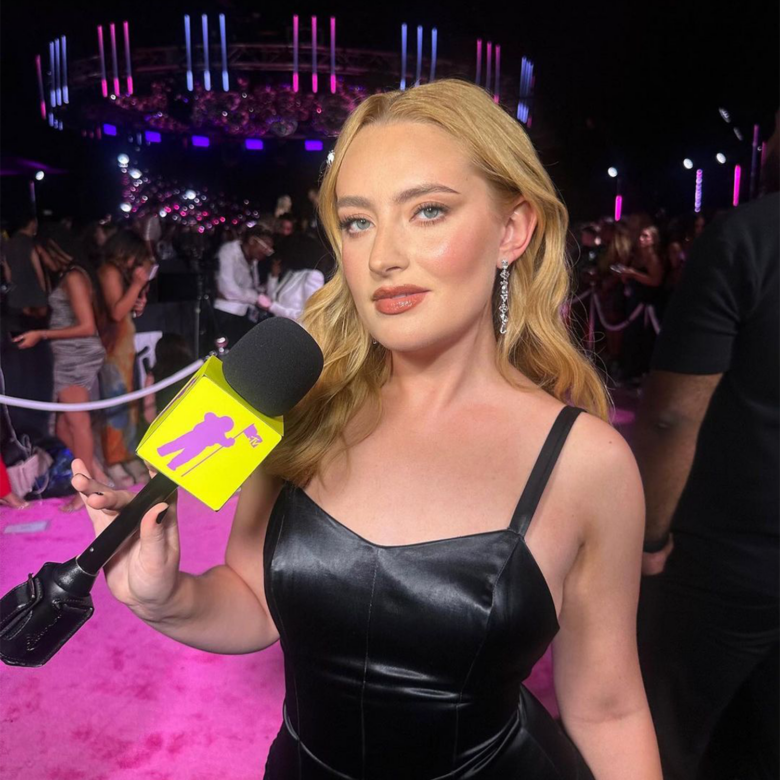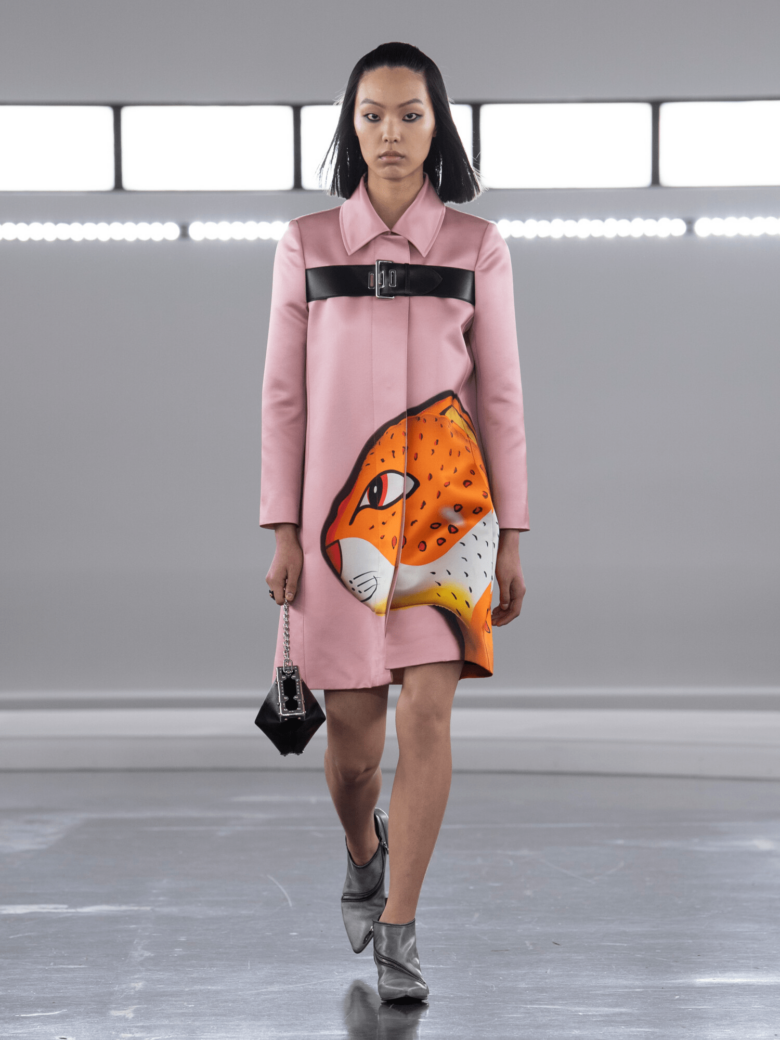Diving fearlessly into all that the metaverse could be with Maisie Williams
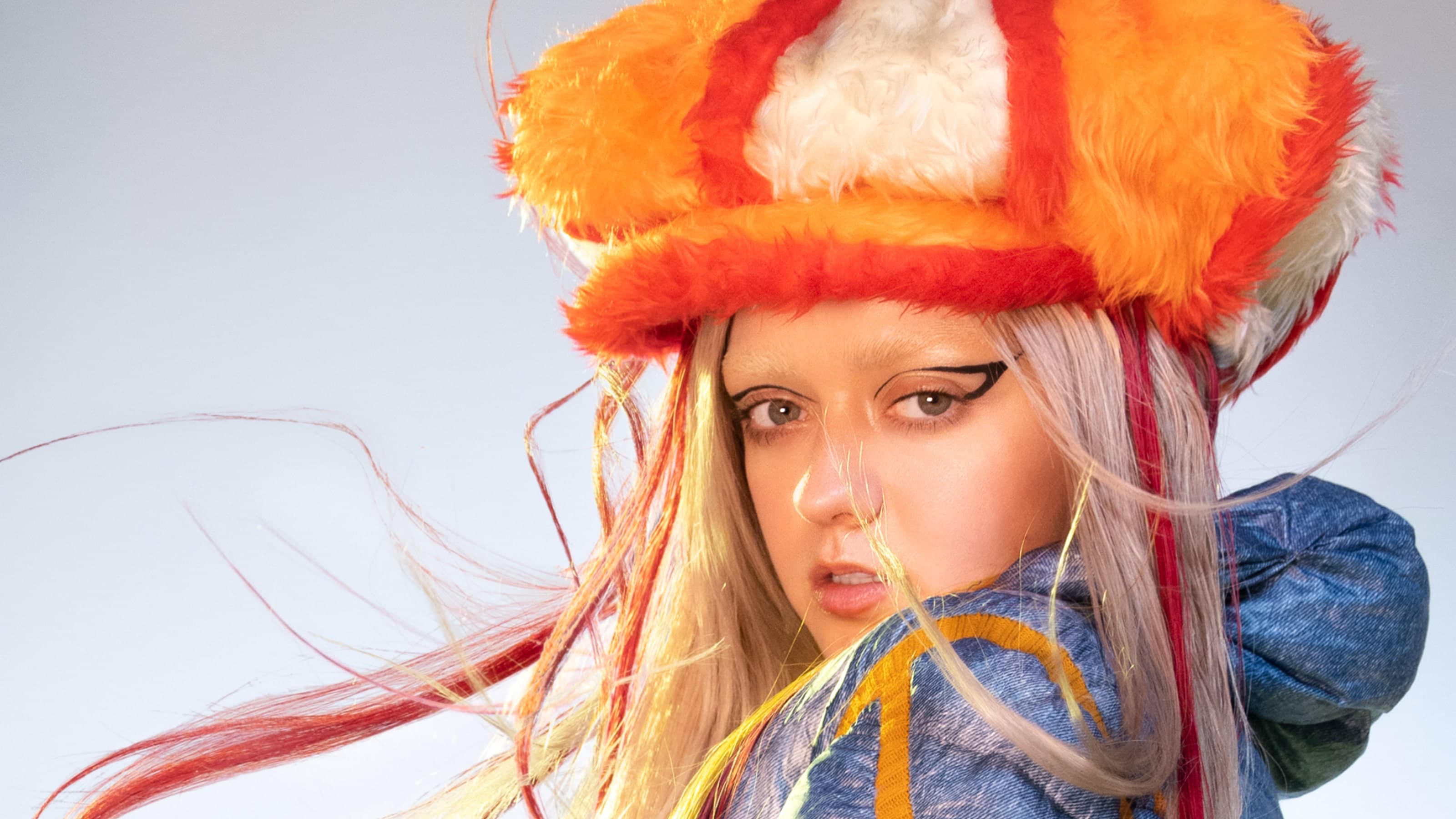
Creativity in 2022 is a different craft from what it once was. The arena hasn’t just shifted, it has sprawled out indefinitely into the digital, our toes now teetering at the edge of the enigmatic promise of the metaverse. While many creatives have so far just been keeping a watchful eye on this expansion, Maisie Williams has employed laser focus and deep-dived.
As an actor, identity exploration is something Williams has been doing for years, all while working for better networking and accessibility in the digital realm through her role as creative strategist and adviser to the creative platform Contact. On the fashion front, Williams was appointed global sustainability ambassador for H&M last year, and has been working with the brand to improve not only its environmental practices but also its journey into the digital, modelling its virtual looks created with impossible fabrics earlier this year.
Having such multifaceted experience cements Williams’s position to investigate where we might be tomorrow with precision and, crucially, unwavering curiosity. In a landscape where conversations about the metaverse are often met with fear, confusion or, worse, naive indifference, that curiosity offers clarity and optimism as we squint into the murky unknown. On an early morning in February, we sat down together to discuss that unknown – all that the metaverse could be, how it could feel and what it could offer as we slip into the next waves of the digital.
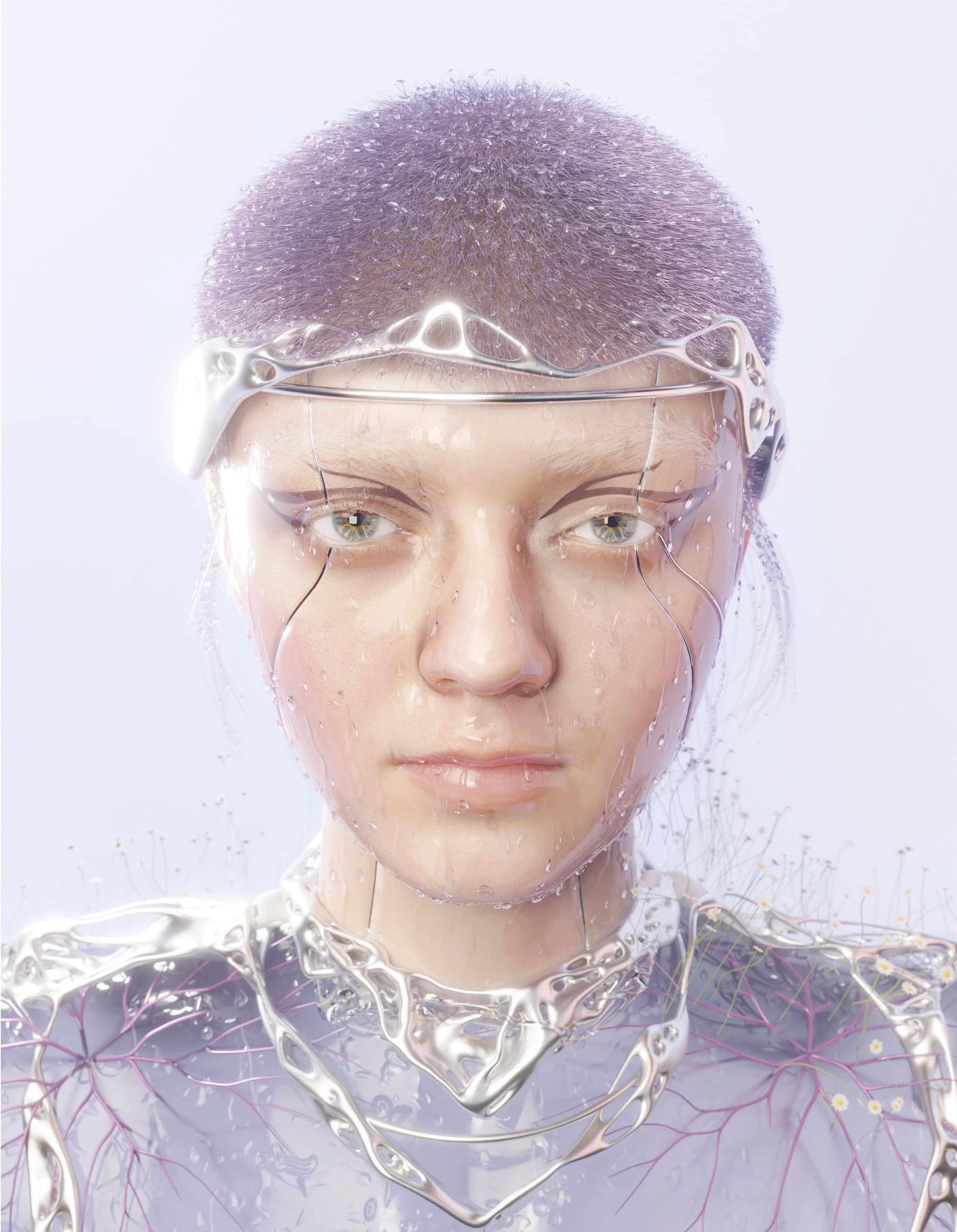
So, since we’re talking about something that either doesn’t exist at all, or at the very least only exists as a singular thing, how do you define the metaverse?
I feel like the metaverse is our digital selves, our interactions, our pleasure, our society, our democracy and our fun brought together in a digital space that will eventually be as enjoyable to explore as the real world.
I don’t think people are talking that much at the moment about how it will feel – they are so obsessed with what it is. You seem like you’ve got a positive perception of it.
Humanity has a choice, right? And I like to think that I live my life, and inspire others to live their lives, by making positive choices. This technology can unlock so many great things, but it can also have devastating consequences, just like social media did, like the fashion industry did, just like anything. But there’s always an opportunity to do things differently. I just like to think that we will make the right decisions. I can’t guarantee that, and I can’t control that, but that’s the hope I have in humanity right now.
We can’t paint the metaverse with one brush if it’s supposed to mirror the world, but what we can do to empower is have hope. As creatives that puts us in a great position to make something quite beautiful digitally.
Yeah. I was having a conversation with my boyfriend about something completely unrelated, but he said, “If you play a game, you’re setting yourself up to be played.” And I kind of feel that way about fear and the future. If you feel there’s something to be afraid of, there’s someone who’s going to use that against you. Fear is the first way to suffocate opportunities. But every person has a right. They have a right to that piece of the metaverse and they have the right to shape what it’s going to be, because no one owns it. Mark Zuckerberg doesn’t own it. A16Z doesn’t own it. Jack Dorsey doesn’t own it. That’s the beautiful thing about what the metaverse could be – it’s completely decentralised.
Why is the digital exciting for fashion?
Fashion is about expression, and it’s always had social currency. People develop their relationships and taste based on other people’s image and whether or not that aligns with their own. That’s a concept that can work very well in the metaverse. In [the metaverse game] Highrise, users change their appearance multiple times a day, and this includes hair colour, eyebrows, the shape of their mouth, their skin colour, their clothes, their nails, their shoes, their accessories. That is the dream of everyday life for someone who loves fashion. And every time I’m going to an event, I think, “Well, what do I wear for the event, and what do I wear after, and while getting ready?” All of those clothes can have devastating effects on the climate but in the metaverse you can just click a button and they’re there.
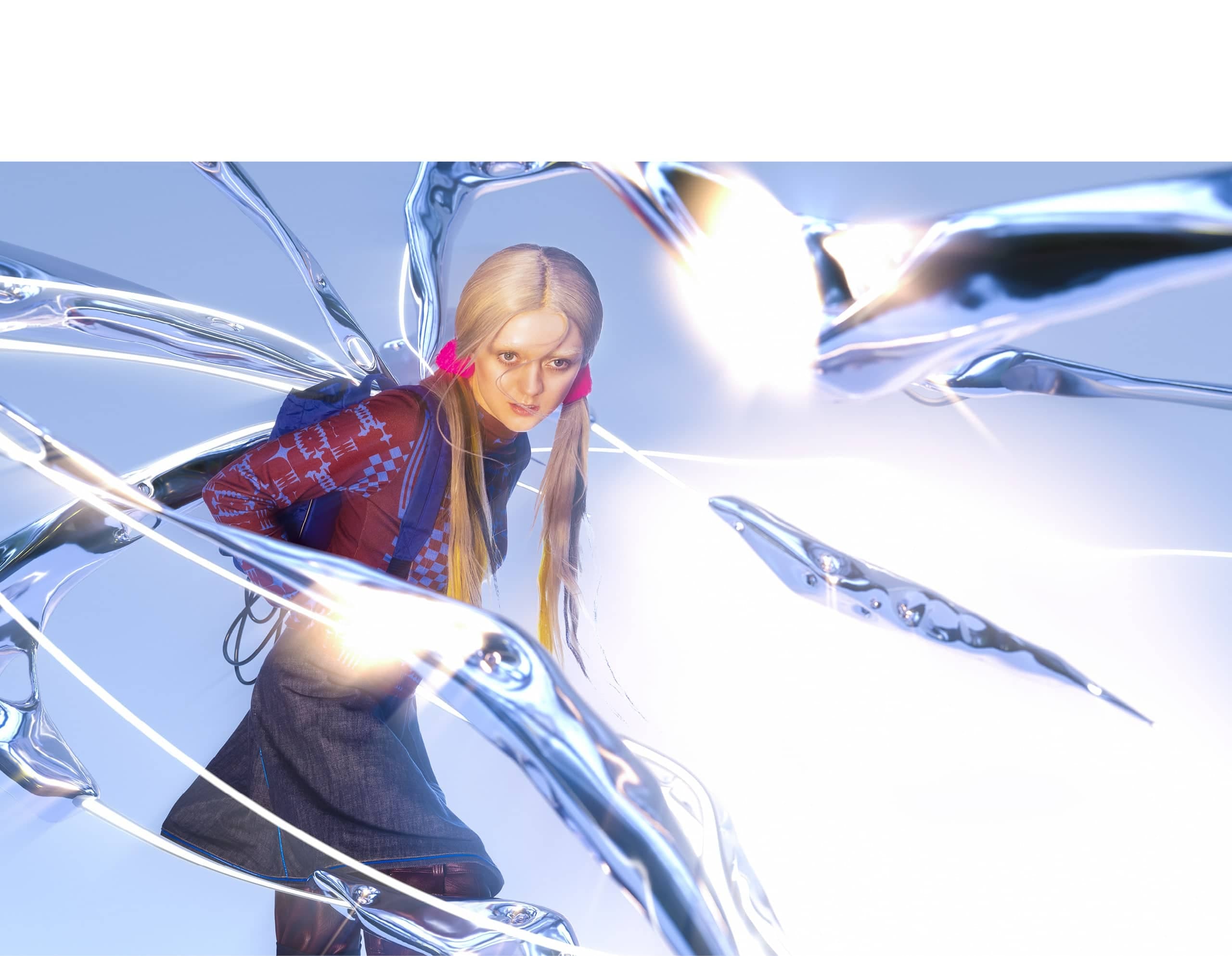
We’re seeing people be more adventurous with what they’re wearing in digital spaces as opposed to physical spaces. How do you see fashion changing as we move into digital spaces and lose insecurities attached to our physical bodies?
At the moment it’s very hard for shame as an emotion to be felt in the metaverse because we have this beauty of anonymity. As the metaverse grows, will there be a time when, interacting with it using augmented reality or virtual reality, your brain gets the same endorphin rushes as being in the room with someone, and starts to adapt to feeling like you’re in a real social situation, even though it’s in a virtual digital space? When we get to that point, I wonder if we’ll see the same thing happen with people feeling physical embarrassment about expressing themselves. Currently, there’s a lot more freedom because there’s less judgment.
I guess there’s a question there about what from the physical realm will have to exist in digital realities for us to learn shame in that space.
And which things we just can’t control. We would love to create a space that is pure endorphin rush. But if you do that, then do you have another TikTok problem where kids are addicted to their phones and no one is playing sport any more? So there has to be some kind of balance, because that’s what it is to be human. You can’t just live in a utopia because then nothing means anything and we have no purpose. So how do we introduce that conflict without just creating more problems for ourselves?
I guess with digital fashion it’s not just greener, but it’s a whole different craft with a different aim.
The really exciting thing is the possibilities that come with digital fashion, looking at the new textures or digital fabric techniques that are going to be seen as luxury when we move into the digital space. People are using a lot of light, mirrored fabrics, and impossible things that you can’t make actual clothes out of without them being unwearable. I feel like there’s something interesting there, where people are going to start making digital fabrics that are luxury and look unbelievable when you see them rendered on a screen and you just go, “That scratches an itch in my head very differently from other things I’ve seen.”
And then you wonder how that’s going to translate to the real world. Are we going to try to create something that mirrors those looks in a slightly different way?
I think we have become more expressive since the pandemic and the trends are very maximalist at the moment, which is very cool. But on the whole we have started wearing clothes that are far more comfortable. A lot of our materials are knitted, jersey or softer materials. I wonder if the more adventurous we get with the metaverse, the more comfortable our outfits will be in the real world.
Do you think wearing something digitally has the same social or emotional cachet as wearing something virtually?
Currently, no, not at all, but I think that’s because we’re trying to interact with a digital garment in the physical space. I think once we have more of our emotions and our personal connections taking place in something like the metaverse, then the way that we interact with clothes will probably be more exciting.
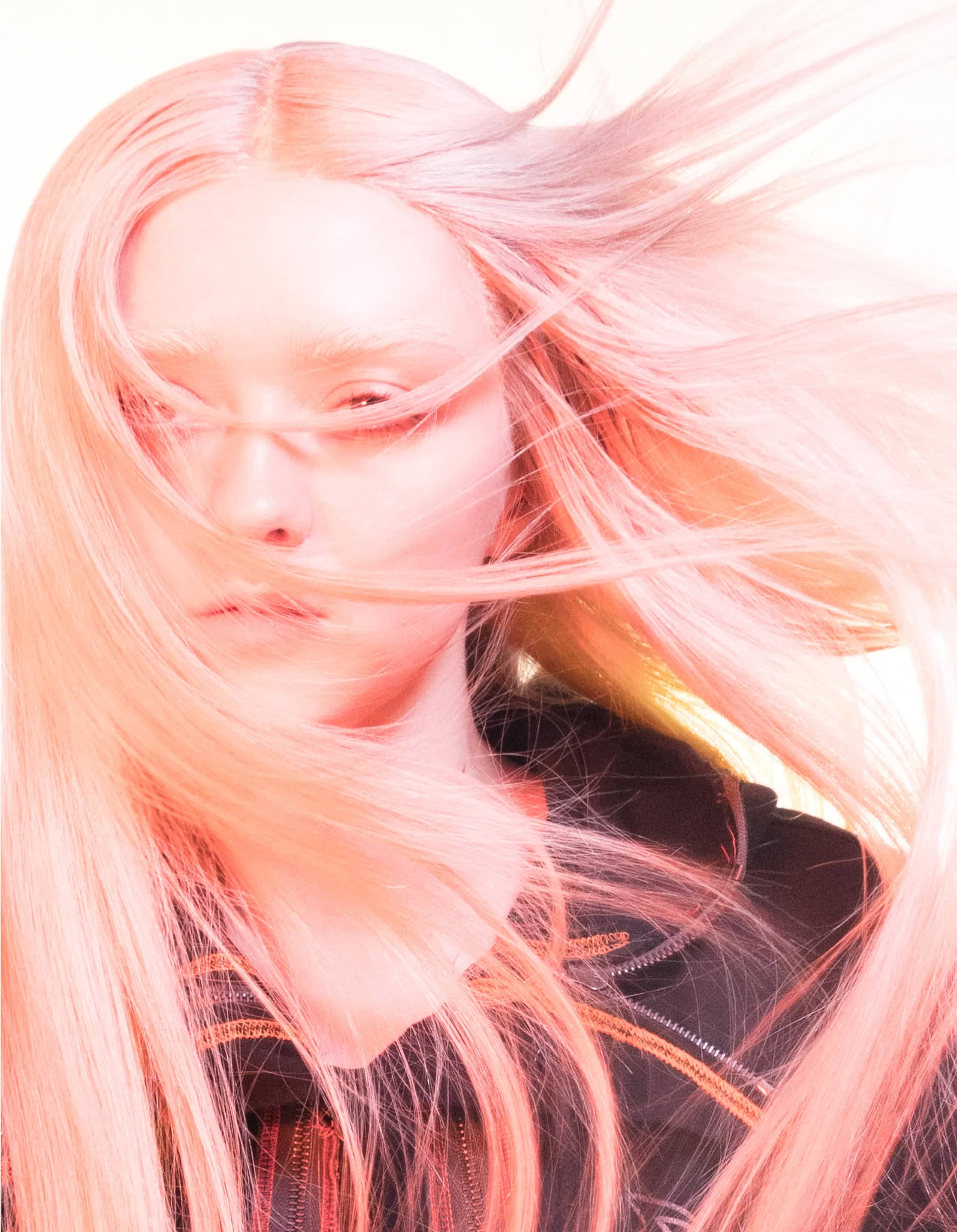
Let’s talk about NFTs. Do you own any?
I actually don’t.
Are there any you want?
Currently, no. There are projects I’m really interested in but in terms of my actual art collection and extending that to the digital space, there has not been anything that has made sense for me to buy. Because just as with anything, you need to buy things that you love. Buying something now because you’re like, “Oh, that’s new and one day it will be worth a lot of money,” is a pretty irresponsible way to interact with NFTs. I’m more interested in helping people make them.
It feels like, at the moment, a lot of NFTs are having the same cultural impact as Rolex watches did 10 years ago. It’s not about the watch itself, it’s that you can own the watch. Except this isn’t a piece of jewellery, it’s art and it’s consumership as an entire idea.
With buying a token, you’re engaging in a contract and whatever the artist wants to put in that contract is what you get. But that also means that what someone who isn’t an artist wants to put in the contract can be placed behind any image. You know, it becomes a boys’ club. But I think what we’re going to start seeing more of is a decentralised network, where owning this piece of art entitles you to something. That’s more interesting because then large groups of people can get together and collectively bring something to life, and that makes people feel like they’re part of something bigger than themselves. I think that’s what people are looking for. That’s why we work. That’s why we have ambition. That’s why we build anything. And so that can be interesting if placed in the right hands.
Speaking of democratisation, blockchain has that same feeling.
Yeah, definitely. I don’t think that’s something to be feared. People always talk about crypto like it’s all made up. But so is all money. So I feel like it’s only a good thing to have that as a more reliable system and as a place where banks can’t lie and give out extortionate loans that they can’t afford. Humans are flawed, so if we can take humans out of it and create a system that’s basically infallible, why wouldn’t we?
So what would your message be to people who hear the word “metaverse” and run away?
I mean, at some point this is going to be a huge part of our society and you’re either ahead of the curve or you’re behind the curve in life. That’s just the way it’s going to be. It’s up to you to choose which side of this you want to be on, but no matter what, you will be involved in the metaverse at some point in the next 20 to 30 years. So why not just get excited by it now?
